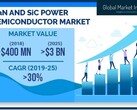Transistors had a profound impact on our 20th century society and helped shape up the digitized world that we live in today. As far as power efficiency goes, however, the materials used to produce transistors are far from ideal, as current leaks occur more often than not, and the wasted electricity needs to be dissipated through cooling systems in the form of heat. Scientists have been trying to find more efficient materials for a few decades now, and it looks like we are now very close to producing superconductors that can safely operate at room temperature and ambient pressure.
One such superconductive material is known as LK-99 and is produced by combining lanarkite and copper phosphide minerals through solid-state synthesis. A South Korean team of scientists first theorized on the LK-99 compound in a paper published last week, and, just yesterday, a group of Chinese researchers posted a video as proof that the superconductive material indeed works. In theory, materials like LK-99 should conduct electrical currents with almost perfect efficiency, allowing for the creation of processors that do not require cooling and utilize every bit of electricity to maximize performance while improving environmental sustainability.
Every industry that uses electricity and magnetism stands to benefit tremendously from these new superconductors. First of all, the IT&C industry with supercomputers, AI accelerators, quantum computers, but also consumer-grade hardware like CPUs and GPUs or industrial-grade electrical wires. Then there are quite a few technologies that are based on magnetism, such as magnetic levitation (maglev) trains, magnetic plasma fusion reactors, medical MRI scanners, electric car motors, portable generators etc.
Proving that LK-99 indeed works is only the first step. Scientists would then need to figure out how to produce this compound in industrial quantities at reasonable prices. This process might take some time, so the first superconductor-based devices could pop up in a few years at the earliest.














